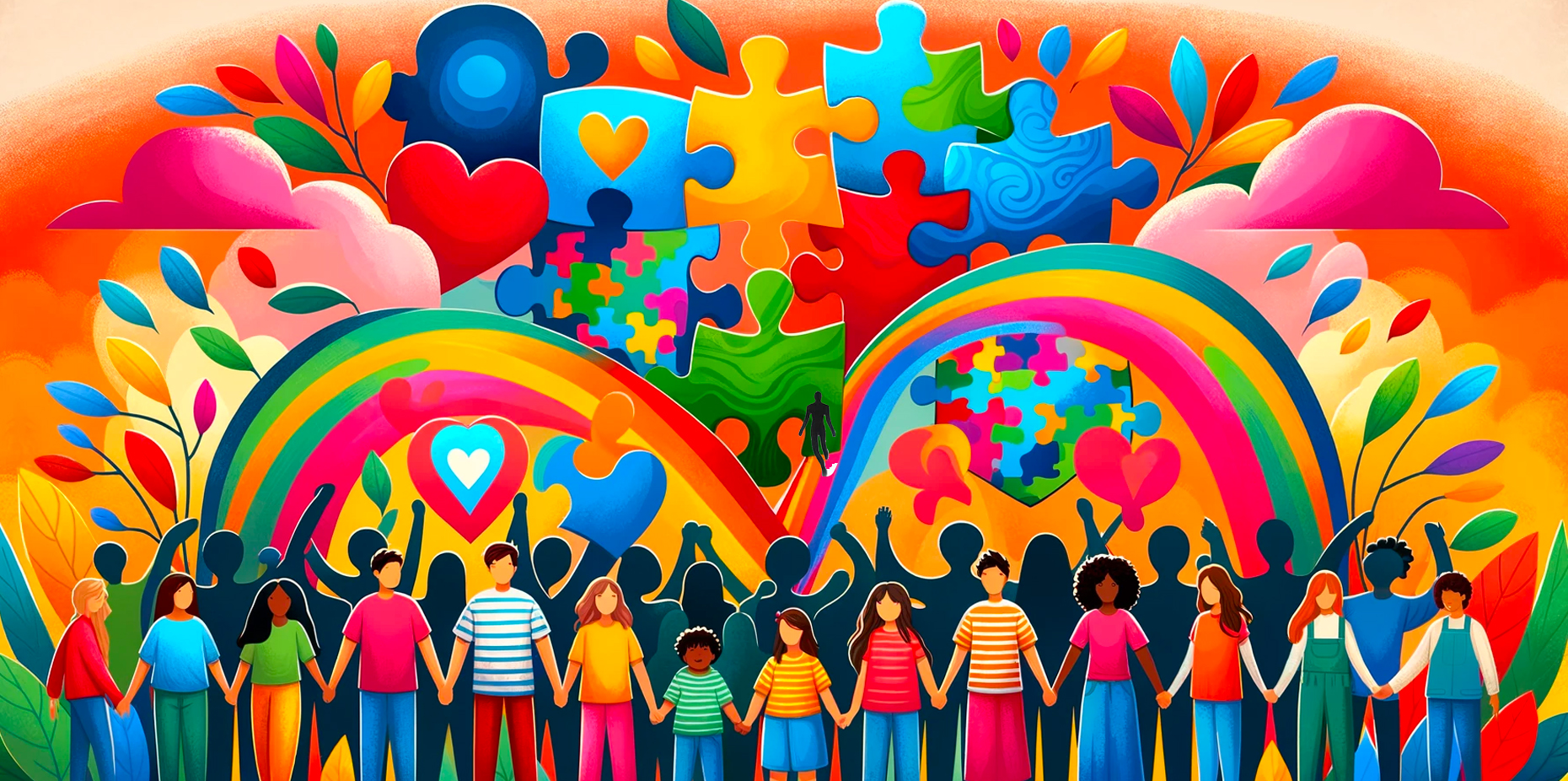Depression is a pervasive mental health condition that affects millions of individuals worldwide. According to recent statistics, approximately 280 million people of all ages suffer from depression globally, making it a leading cause of disability (1).
Table of Contents
What is Depression?
Depression is characterized as a mood disorder that might result in enduring feelings of emptiness, sadness, and a diminished sense of joy. It differs from the typical mood fluctuations individuals go through in the course of their lives.
The duration of depression is variable, extending from weeks to months or even years. For many individuals, it may transform into a persistent condition marked by periods of improvement and relapse.
The expression of depression varies among individuals, affecting daily functioning, resulting in a loss of time, and decreased productivity (2). Furthermore, it can impact relationships and potentially worsen certain chronic health conditions.
While occasional feelings of melancholy are a natural part of life, persistent emotions of despondency or hopelessness could suggest depression. Acknowledging depression as a serious medical condition is vital, as it may potentially exacerbate without appropriate treatment (3).
Types of Depression
Depressive disorders encompass a variety of conditions, each presenting a spectrum of symptoms and durations. It’s essential to recognize the diverse experiences individuals may encounter when dealing with these conditions.
- Major Depressive Disorder (Clinical Depression): Clinical depression involves recurring feelings of worthlessness, sadness, or low mood lasting at least 14 days (4). Additional symptoms might include changes in appetite or disruptions in sleep patterns. It’s important to note that clinical depression is prevalent and can be severe.
- Persistent Depressive Disorder (PDD): PDD is a persistent depressive disorder involving mild to moderate depression persisting for two years or longer. While less severe than clinical depression, PDD is characterized by prolonged periods of sadness and lack of motivation (5).
- Prenatal Depression: Prenatal depression refers to the experience of persistent feelings of sadness, anxiety, or mood fluctuations during pregnancy. It’s essential to acknowledge the variability in the intensity and presentation of these emotional challenges among pregnant individuals. Research indicates that factors such as hormonal changes, life stressors, and personal history might contribute to the development of prenatal depression (6).
- Postpartum Depression: Postpartum depression is characterized by persistent feelings of sadness, fatigue, and an overwhelming sense of responsibility within the initial four weeks or up to a year after giving birth.
- Premenstrual Dysphoric Disorder (PMDD): PMDD manifests with mood symptoms potentially causing anxiety, extreme irritability, or depression. While these symptoms generally improve after menstruation begins, they can significantly impact daily life (7).
- Seasonal Affective Disorder (Seasonal Depression): A subtype of major depressive disorder, SAD typically emerges during the colder months, with symptoms receding in the warmer months (8).
- Atypical Depression: Also known as clinical depression with atypical features, this condition differs slightly from typical depression. Key distinctions include heightened rejection sensitivity, increased appetite, and mood reactivity (9).
- Adjustment Disorder with Depressed Mood: This condition arises in response to a significant life event or stressor, leading to emotional and behavioral symptoms that include feelings of sadness, hopelessness, and a lack of enjoyment in previously interested activities (10).
- Depressive Disorder Due to Another Medical Condition: Certain medical conditions, such as heart disease, Parkinson’s disease, hypothyroidism, or cancer, may contribute to the onset of depression. Addressing these underlying conditions might lead to an improvement in depressive symptoms (11).
It’s noteworthy that people diagnosed with bipolar disorder may experience episodes of depression and manic episodes (12). Understanding these categories helps acknowledge the diversity of experiences and the importance of individualized approaches to treatment.
General Symptoms of Depression
The symptoms associated with depression may vary in intensity, frequency, and duration. If individuals find themselves consistently experiencing several of the following signs and symptoms on most days for at least two weeks, it could be an indication of potential depression (13):
- Feeling bothered, annoyed, or angry.
- Experiencing persistent feelings of sadness, anxiety, or a sense of emptiness.
- Frequent episodes of crying.
- Noticing a decline in interest in hobbies and activities that were once enjoyable.
- Feeling hopeless, worthless, and having a generally pessimistic outlook.
- Experiencing difficulties in concentration, memory recall, or decision-making.
- Changes in weight, whether an increase or decrease.
- Difficulty sleeping, early morning awakening, or oversleeping.
- Decreased energy levels or persistent fatigue.
- Slowed movement or speech.
- Chronic physical pain without a clear cause that does not improve with treatment (e.g., headaches, unexplained aches or pains, digestive issues, cramps).
- Thoughts suicide, self-harm, or even suicide attempts.
If you or someone you know is exhibiting these signs, seeking support from healthcare professionals is essential. With the right intervention and support, individuals can embark on a journey towards recovery and improved mental well-being.
Symptoms in Females
According to the Centers for Disease Control and Prevention (CDC), depression appears to be nearly twice as prevalent in females compared to males. However, the precise reasons for this gender difference are not fully comprehended. A study from 2021 suggests that reporting and seeking treatment for depression symptoms may contribute to this variance. Exposure to gender discrimination is also associated with an increased risk of depression in females. Additionally, unique forms of depression, such as postpartum depression and premenstrual dysphoric disorder, are more commonly observed among females (14).
Females may experience a range of symptoms affecting mood, emotional well-being, behavior, cognitive abilities, sleep patterns, and physical well-being (15).
Symptoms in Males
Data from the National Health and Nutrition study reveals that 5.5% of males report depression symptoms in a given 2-week period, compared to 10.4% of females. Males may experience symptoms related to mood, emotional well-being, behavior, sexual interest, cognitive abilities, sleep patterns, and physical well-being (16).
Note: While this article references symptoms commonly observed in males and females, it is essential to acknowledge that depression symptoms can vary significantly and are not confined to binary gender distinctions. Individuals across the entire gender spectrum may experience depression in diverse ways, with these categorizations rooted in general trends rather than absolute distinctions.
Symptoms in Children
The CDC estimates that 4.4% of children and teenagers aged 3–17 in the U.S. have a diagnosis of depression. Symptoms in children may include crying, low energy, clinginess, defiant behavior, and vocal outbursts. Expressing feelings may be challenging for younger children, making it difficult for them to communicate their feelings of sadness (17).
Understanding the diverse manifestations of depression across different demographic groups is crucial for early detection and effective intervention. By recognizing the unique symptoms experienced by females, males, and children, healthcare professionals can tailor their approaches to provide targeted support.
Causes of Depression
Understanding depression involves recognizing various potential causes, acknowledging the complexity and variability of individual experiences.
- Hormonal Influence: Changes in female hormones, such as progesterone and estrogen, during periods like the menstrual cycle, menopause, postpartum phase, or perimenopause, might increase the risk of depression. However, the exact relationship between hormonal fluctuations and depression remains a subject of ongoing investigation. (18)
- Brain Chemistry and Mood Regulation: Depression may be linked to a chemical imbalance in specific brain areas responsible for managing mood, thoughts, sleep, appetite, and behavior. The intricacies of these interactions contribute to the complexity of understanding depressive disorders. (19)
- Childhood Trauma: Events during early childhood can influence how the body responds to fear and stress, potentially impacting susceptibility to depression. The mechanisms linking early trauma to depression are intricate and warrant further exploration. (20)
- Family History and Genetic Predisposition: Individuals with a family history of depression or other mood disorders might have an increased risk. This suggests a potential genetic component, although the interplay of genes in depression is not fully elucidated. (21)
- Medical Conditions and Associated Risks: Certain medical conditions, including heart attack, insomnia, chronic pain, Parkinson’s disease, stroke, chronic illnesses, and cancer, may pose an increased risk for depression. However, the nature of these connections is multifaceted and requires ongoing investigation. (22)
- Brain Structure and Activity: There’s a potential association between a less active frontal lobe in the brain and an elevated risk of depression. However, the temporal sequence of this relationship—whether it occurs before or after the onset of depressive symptoms—remains an area of scientific inquiry. (23)
Understanding depression requires a comprehensive exploration of these interconnected factors. Ongoing scientific research continues to shed light on the intricate mechanisms underlying depressive disorders.
Depression Risk Factors
Risk factors for depression encompass a diverse range of influences, spanning biochemical, medical, social, genetic, and circumstantial factors. It’s crucial to acknowledge the intricate interplay of these elements without resorting to absolute statements.
- Genetic Influence: A family history of depression is associated with an increased risk, suggesting a hereditary component. However, the manifestation of depression is likely influenced by a combination of genetic and environmental factors (21).
- Sexual Disparities: Major depression is observed to be twice as prevalent in females, reflecting a potential role of sex-related factors in the development of depressive disorders (14).
- Medications and Depression: Certain medications, such as some hormonal birth control, corticosteroids, and beta-blockers, may be linked to an increased risk of depression. However, the specific mechanisms underlying these associations necessitate ongoing research (24).
- Socioeconomic Status: Socioeconomic factors, including financial struggles and perceived low social status, might contribute to an elevated risk of depression. The nuanced relationship between socioeconomic status and mental health warrants careful consideration (25).
- Vitamin D and Depressive Symptoms: Studies have suggested a link between low levels of vitamin D and depressive symptoms, highlighting the potential role of nutritional factors in mental health (26).
- Gender Identity and Depression: Transgender individuals may face an almost fourfold increased risk of depression compared to cisgender individuals, emphasizing the importance of considering diverse identity factors in mental health research (27).
- Medical Illnesses and Depression: Chronic medical conditions, such as heart disease and cancer, may be associated with an elevated risk of depression. However, the causative factors and bidirectional relationships require ongoing exploration within the realm of medical research (28).
By recognizing and addressing the diverse risk factors discussed, we can enhance our approach to prevention, early intervention, and treatment strategies.
Diagnosis of Depression
Diagnosing depression is not a straightforward process, as there isn’t a definitive test for it. Rather than a singular test, depression diagnosis often involves your healthcare professional asking a series of questions about various aspects such as:
- Mood: How do you generally feel?
- Appetite: Have there been changes in your eating habits?
- Sleep Pattern: How has your sleep been affected?
- Activity Level: Are you less active than usual?
- Thoughts: What’s occupying your mind?
Based on information they may collect from you, input from your family, input from previous treatment providers, a mental status exam and a review of bloodwork they may identify a specific type of depression, such as postpartum depression, or seasonal affective disorder by considering the unique context of your symptoms.
It is crucial not to dismiss any signs of depression. If your mood doesn’t show improvement or worsens, seeking medical assistance is imperative. Depression is a significant mental health disorder, and its complications can be severe if left untreated.
Complications may include:
- Physical pain
- Changes in weight (gain or loss)
- Relationship problems
- Substance use disorder
- Thoughts of suicide
- Social isolation
- Self-harm
Remember that the diagnostic process is complex and individual experiences with depression can vary widely. Seeking professional help is vital for an accurate diagnosis and appropriate management of depression (29).
Treatment Options for Depression
Managing symptoms of depression can be a journey of finding what works best for you, as it may involve a combination of various treatments. Both medical interventions and lifestyle adjustments are commonly utilized, offering a range of options to address the complexities of depression (30).
Medical Treatments
Effective medical treatments for depression include several classes of antidepressants tailored to individual needs.
- Serotonin and Norepinephrine Reuptake Inhibitors (SNRIs): Examples include duloxetine (Cymbalta), levomilnacipran (Fetzima), desvenlafaxine (Pristiq), and venlafaxine (Effexor XR). SNRIs elevate serotonin and norepinephrine levels to alleviate depression symptoms. Precautions may apply, such as avoiding use with MAOIs and being cautious in cases of liver or kidney problems. (31)
- Selective Serotonin Reuptake Inhibitors (SSRIs): Examples include escitalopram (Lexapro), fluvoxamine (Luvox), citalopram (Celexa), paroxetine (Paxil XR, Paxil, Pexeva), and sertraline (Zoloft). SSRIs, the most frequently prescribed antidepressants, may have fewer side effects and work by increasing serotonin levels in the brain. Caution is advised when using them in combination with certain drugs, during pregnancy, or if diagnosed with narrow-angle glaucoma. (32)
- Atypical Antidepressants – Noradrenaline and Dopamine Reuptake Inhibitors (NDRIs): An example is bupropion (Wellbutrin), which raises dopamine and noradrenaline levels.
- Monoamine Oxidase Inhibitors (MAOIs): Examples include selegiline (Emsam), isocarboxazid (Marplan), phenelzine (Nardil), tranylcypromine (Parnate). Reserved for cases where other treatments have failed due to side effects and safety concerns. (33)
- N-methyl D-aspartate (NMDA) Antagonists: Esketamine (Spravato), an FDA-approved NMDA medication, is used when other antidepressants are unsuccessful. It is administered in a controlled healthcare setting due to potential side effects like tiredness and dissociation (34).
- Tricyclic and Tetracyclic Antidepressants: Examples include imipramine (Tofranil), amitriptyline (Elavil), doxepin (Sinequan), and nortriptyline (Pamelor). TCAs and TECAs increase serotonin and norepinephrine levels, though they may have more side effects than SSRIs or SNRIs (35). Caution is urged, especially concerning MAOI interactions and narrow-angle glaucoma.
Each medication type has its benefits and potential risks, emphasizing the importance of an individualized approach to depression treatment. Tailoring the choice of medication to the individual is crucial, considering the benefits and potential risks associated with each class of antidepressants. Always consult with a healthcare professional to determine the most suitable treatment plan based on your unique needs.
Psychotherapy
Psychotherapy plays a crucial role in treating depression by addressing negative thought patterns and facilitating positive behavioral changes.
- Cognitive Behavioral Therapy (CBT): Identifies and addresses negative thought patterns, fostering positive thinking. Assigns practical exercises to replace negative thoughts with more positive ones (36).
- Light Therapy: Exposure to light regulates mood, particularly helpful in seasonal affective disorder (37). Caution is advised for those with bipolar disorder.
- Electroconvulsive Therapy (ECT): Uses controlled electrical currents for severe or treatment-resistant depression. Side effects include headaches, nausea, muscle aches, and memory problems (38).
- Dialectical Behavior Therapy (DBT): Emphasizes validation and acceptance of uncomfortable thoughts, facilitating change and recovery planning (39).
- Psychodynamic Therapy: Explores and copes with present-day realities shaped by unconscious, childhood experiences (40).
- Alternative Therapies: Consider approaches like meditation and acupuncture alongside traditional treatments. Meditation has shown promise in improving depression symptoms, while acupuncture may complement clinical interventions (41).
Combining psychotherapy with medical interventions provides a holistic approach to managing depression. Always consult with your healthcare provider to determine the most suitable treatment plan based on your unique needs and circumstances (42).
Lifestyle Changes
Incorporating lifestyle changes into depression management can complement traditional treatments and promote overall well-being.
- Caution Regarding Alcohol and Substance Use: While consuming alcohol or using substances may offer temporary relief, it’s essential to note that these practices can exacerbate symptoms of depression and anxiety over time (43).
- Incorporate Physical Activity: Strive for at least 30 minutes of physical activity on 3 to 5 days per week. Engaging in regular exercise can potentially boost the production of endorphins, hormones known to positively impact mood (44).
- Self-Care Practices: Taking proactive steps to care for yourself can contribute to the alleviation of depression symptoms. This involves ensuring adequate sleep, maintaining a nutritious diet, avoiding negative influences, and engaging in activities that bring you joy (45).
Lifestyle changes, when used in conjunction with evidence-based treatments, may contribute to a comprehensive depression management plan. Always consult with your healthcare provider to ensure a balanced and personalized approach that suits your unique needs.
Depression and Alcohol
Research suggests a noteworthy correlation between depression and alcohol misuse. Individuals grappling with depression may be more prone to engaging in problematic alcohol use. It is essential to note, however, that this association does not imply a universal cause-and-effect relationship. Rather, it underscores the complexity of these conditions and the need for individualized understanding (46).
Among the 20.2 million adults in the United States who have experienced a substance use disorder, approximately 50 percent have been found to concurrently suffer from a mental illness. This statistic highlights the substantial overlap between substance misuse and mental health challenges, indicating the importance of addressing both aspects in a comprehensive manner (47).
It is important to acknowledge the conditional nature of the impact of alcohol on individuals with depression. While frequent alcohol consumption has been associated with exacerbating depressive symptoms, it is crucial to recognize that not every individual will experience the same outcomes. The relationship between alcohol and depression may vary based on factors such as genetic predisposition, environmental influences, and overall health (48).
Depression and Anxiety
Depression and anxiety often coexist, impacting individuals simultaneously. Research indicates that more than 70 percent of those dealing with depressive disorders also exhibit symptoms of anxiety. While distinct in their origins, both conditions share commonalities in symptoms, and understanding their interplay is crucial for effective management.
Despite arising from different triggers, depression, and anxiety manifest overlapping symptoms, such as:
- Irritability: Individuals may experience heightened irritability, affecting their interactions and daily functioning.
- Difficulty with Memory or Concentration: Both conditions can impair cognitive functions, leading to challenges in memory recall and concentration.
- Sleep Problems: Disrupted sleep patterns, including insomnia or excessive sleeping, are prevalent symptoms seen in both depression and anxiety.
Fortunately, overlapping symptoms allow for shared treatment approaches. Both depression and anxiety can be effectively managed through:
- Therapy, including Cognitive Behavioral Therapy (CBT): CBT has demonstrated efficacy in addressing the cognitive distortions associated with both depression and anxiety, providing individuals with practical coping strategies.
- Alternative Therapies, such as Hypnotherapy: Complementary approaches, like hypnotherapy, have shown promise in enhancing traditional treatments, offering individuals additional avenues for symptom relief.
- Medication: Certain medications, prescribed under the guidance of a healthcare professional, can alleviate symptoms of both depression and anxiety. It is essential to note that the choice of medication may vary based on individual factors.
It is important to acknowledge the variability in how depression and anxiety present in individuals. One-size-fits-all approaches may not be effective, and the response to treatments can vary. Therefore, healthcare professionals adopt a personalized approach, tailoring interventions based on an individual’s unique symptoms and circumstances.
If you suspect you may be experiencing symptoms of depression, anxiety, or a combination of both, it is advisable to consult with a healthcare professional. Collaborating with a healthcare provider allows for a comprehensive assessment of coexisting symptoms and facilitates the development of a tailored treatment plan (49).
Depression in Pregnancy
Pregnancy is typically a joyful period, but it’s important to recognize that some expectant mothers may encounter depression during this time.
Common symptoms of depression during pregnancy may be:
- Increased anxiety
- Loss of interest in previously enjoyed activities
- Alterations in appetite or eating patterns
- Feelings of hopelessness
- Challenges in concentration or memory
- Sleep disturbances, ranging from insomnia to excessive sleep
- Persistent sadness
- Thoughts related to death or suicide
It is noteworthy to acknowledge that treatment for depression during pregnancy may primarily involve talk therapy and other natural interventions(50). However, it is essential to approach this subject with conditional language, recognizing the variability in individual experiences. Depending on the severity of depression, medication use during pregnancy may also be required. Consulting with your psychiatric provider can help with medical decision making during this time.
Preventing Depression
Preventing depression is a challenging task, as it is not easily discernible what specifically triggers it. The elusive nature of its causes makes prevention a complex undertaking. However, gaining insight into effective strategies becomes crucial after experiencing a depressive episode, potentially empowering individuals to avert future occurrences through lifestyle adjustments and therapeutic measures (51).
Various techniques that might contribute to depression prevention include:
- Regular Exercise: Engaging in consistent physical activity is recognized as a potential factor in mitigating the risk of depression.
- Stress Reduction: Implementing strategies to reduce stress levels is identified as a potential means of preventing the onset of depression.
- Adequate Sleep: Prioritizing sufficient and quality sleep is suggested as a beneficial measure in warding off depressive tendencies.
- Building Strong Social Connections: Establishing and nurturing meaningful relationships with others is considered a factor that could contribute to preventing depressive episodes.
- Adherence to Treatments: Following prescribed treatments, whether therapeutic or medicinal, may play a role in preventing the recurrence of depressive episodes.
Additionally, there are various other techniques and ideas that may be explored to further enhance the prevention of depression. It is important to note that while these approaches may be beneficial for some, individual responses can vary, and the effectiveness of prevention strategies remains subject to variability.
Conclusion
Depression is a condition that may vary in duration, ranging from temporary challenges to long-term struggles. It’s important to note that the effectiveness of treatment can differ among individuals, and there is no guarantee of complete resolution. Nevertheless, treatment frequently plays a crucial role in making the symptoms more manageable.
Effectively managing depression symptoms entails discovering a suitable combination of medications and therapies. In cases where a particular treatment proves ineffective, it is advisable to engage in a dialogue with your healthcare professional. They can assist in devising an alternative treatment plan tailored to better address and manage your specific condition. Remember, finding the most suitable approach often involves a collaborative effort between you and your healthcare team.












